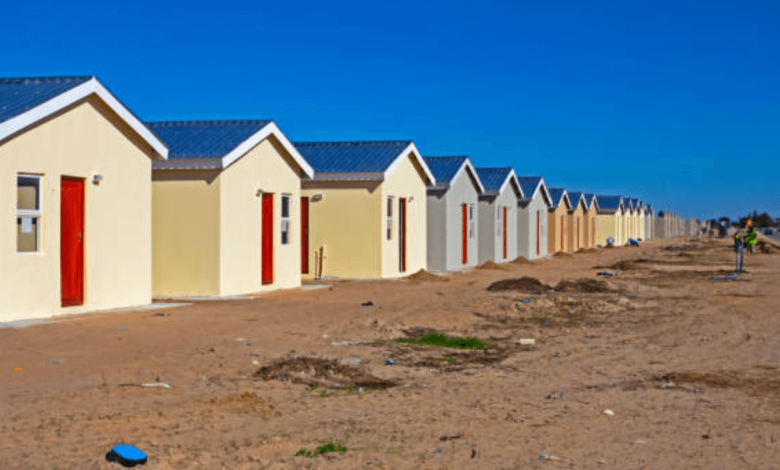Smart Tips to Avoid RDP Housing Scams in Gauteng

RDP housing scams are on the rise in Gauteng, with scammers exploiting vulnerable people desperate for housing by illegally selling RDP houses or issuing fraudulent documents. To protect yourself, follow these expert tips.
Verify Legitimacy of Property and Seller
Before committing to any transaction, always ensure that the property and seller are legitimate.
Confirm the Property’s Existence and Legal Status
Confirm the property’s existence and its legal status by contacting the Department of Human Settlements or your local Housing Department. The department will verify whether the property is registered and if it is part of the government’s RDP program. Keep in mind that RDP houses are not sold by the Department of Human Settlements. They are allocated for free. If someone claims to sell an RDP house, it’s most likely a scam.
Beware of False Claims from Officials
Be cautious of individuals who claim to be high-ranking government officials, such as directors or MECs, asking for money or personal information. These are fraudulent attempts. Always verify the identity of anyone claiming to be an official. Contact the Department of Human Settlements directly through official channels to confirm their identity.
Check Seller’s Credentials
Ensure the seller or agent is licensed. You can do this by checking their credentials with the Property Practitioners Regulatory Authority (PPRA). Always ensure the agent holds a valid Fidelity Fund Certificate before proceeding.
Understand RDP House Sale Rules
It’s crucial to know the laws governing RDP house transactions to protect yourself from fraud.
RDP Houses Cannot Be Sold in the First 8 Years
According to South African law, RDP houses cannot be sold within the first 8 years of occupancy. If someone offers to sell an RDP house within this period, it is a clear sign of fraud.
Selling After 8 Years
After 8 years, the owner may sell the property, but there are conditions:
- The owner must offer the house back to the State before selling it to a third party.
- The seller must have written consent from the Department of Housing.
- A letter of authority from the deeds office is also necessary for the sale.
No Charge for Title Deeds
The Department of Human Settlements does not charge for title deeds. Be wary if the seller asks for payment to obtain title deeds. This is a scam.
Avoid Upfront Payments and Suspicious Deals
One of the most common ways scammers take advantage of people is by asking for payments upfront. Avoid this at all costs.
Never Pay Upfront or Make Deposits
Never pay upfront fees or deposits before confirming the property’s legitimacy. Scammers often lure victims by offering “too good to be true” deals. If the deal seems unusually quick or inexpensive, it’s a red flag. Always meet with the seller in person before making any payments.
Be Cautious of “Too Good to Be True” Deals
If a deal seems too good to be true, it probably is. Scammers often offer RDP houses at prices well below market value to entice victims. These deals are usually fraudulent.
Secure Your Financial Transactions
Use secure platforms for financial transactions. Never share personal or banking information with strangers. If someone asks you to pay in cash or through an untraceable method, avoid the transaction.
Meet Sellers or Agents in Person
Always meet the seller or agent in person at their official office or at a verified location.
Verify Seller’s Identity and Documentation
When you meet the seller, ask for identification and documentation related to the property. This should include the title deed, proof of ownership, and, if applicable, a letter of authority from the Department of Human Settlements.
Report Suspicious Activity
If you suspect you’ve encountered a scam, report it immediately. The sooner you act, the more likely it is that authorities can prevent others from becoming victims.
Report to the Housing Department or Authorities
If you encounter suspicious offers, fraudsters, or fraudulent documents, contact the Department of Human Settlements fraud hotline at 0800 204 401. You can also reach out to the police or the department’s toll-free number for housing inquiries at 0800 146 873.
Report Suspicious Ads on Social Media
Stay vigilant about social media ads or individuals claiming to sell RDP houses illegally. Report these activities to help protect others from falling victim to similar scams.
Seek Legal Advice
If you’re unsure about any aspect of a property transaction or suspect fraud, consult a legal professional or qualified property expert. They can verify documents and provide advice on how to proceed.
Legal experts can also assist in filing a case if you suspect fraud. Their expertise can help ensure that your interests are protected.
Check also: Avoid RDP Housing Scams: Essential Tips to Protect Yourself
RDP housing scams are becoming more common in Gauteng, but you can protect yourself by being informed. By verifying sellers, understanding the rules of RDP house sales, avoiding upfront payments, and reporting suspicious activity, you can minimize the risk of falling victim to fraud. Always seek legal advice when in doubt.